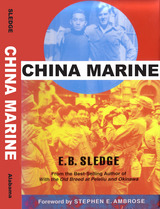
China’s mid-twentieth-century wars pose extraordinary interpretive challenges. The issue is not just that the Chinese fought for such a long time—from the Marco Polo Bridge Incident of July 1937 until the close of the Korean War in 1953—across such vast territory. As Hans van de Ven explains, the greatest puzzles lie in understanding China’s simultaneous external and internal wars. Much is at stake, politically, in how this story is told.
Today in its official history and public commemorations, the People’s Republic asserts Chinese unity against Japan during World War II. But this overwrites the era’s stark divisions between Communists and Nationalists, increasingly erasing the civil war from memory. Van de Ven argues that the war with Japan, the civil war, and its aftermath were in fact of a piece—a singular process of conflict and political change. Reintegrating the Communist uprising with the Sino-Japanese War, he shows how the Communists took advantage of wartime to increase their appeal, how fissures between the Nationalists and Communists affected anti-Japanese resistance, and how the fractious coalition fostered conditions for revolution.
In the process, the Chinese invented an influential paradigm of war, wherein the Clausewitzian model of total war between well-defined interstate enemies gave way to murky campaigns of national liberation involving diverse domestic and outside belligerents. This history disappears when the realities of China’s mid-century conflicts are stripped from public view. China at War recovers them.

China Marine is the long-awaited sequel to E. B. Sledge’s critically acclaimed memoir, With the Old Breed at Peleliu and Okinawa. Picking up where his previous memoir leaves off, Sledge, a young marine in the First Division, traces his company’s movements and charts his own difficult passage to peace following his horrific experiences in the Pacific. He reflects on his duty in the ancient city of Peiping (now Beijing) and recounts the difficulty of returning to his hometown of Mobile, Alabama, and resuming civilian life haunted by the shadows of close combat.
Distinguished historians have praised Sledge’s first book as the definitive rifleman’s account of World War II, ranking it with the Civil War’s Red Badge of Courage and World War I’s All Quiet on the Western Front. Although With the Old Breed ends with the surrender of Japan, marines in the Pacific were still faced with the mission of disarming the immense Japanese forces on the Asian mainland and reestablishing order. For infantrymen so long engaged in the savage and surreal world of close combat, there remained the personal tasks of regaining normalcy and dealing with suppressed memories, fears, and guilt.
In China Marine, E. B. Sledge completes his story and provides emotional closure to the searing events detailed in his first memoir. He speaks frankly about the real costs of war, emotional and psychological as well as physical, and explains the lifetime loyalties that develop between men who face fear, loss, and horror together. That bond becomes one of the newfound treasures of life after battle.
With his hallmark style of simplicity, directness, and lack of sentimentality, "Sledgehammer" has given us yet another great document of war literature.

Both a memoir and a documentary history of the Chinese revolution from 1949 through the Cultural Revolution, The Man Who Stayed Behind provides a human perspective on China’s efforts to build a new society. Critical of both his own mistakes and those of the Communist leadership, Rittenberg nevertheless gives an even-handed account of a country that is now free of internal war for the first time in a hundred years.
READERS
Browse our collection.
PUBLISHERS
See BiblioVault's publisher services.
STUDENT SERVICES
Files for college accessibility offices.
UChicago Accessibility Resources
home | accessibility | search | about | contact us
BiblioVault ® 2001 - 2024
The University of Chicago Press









